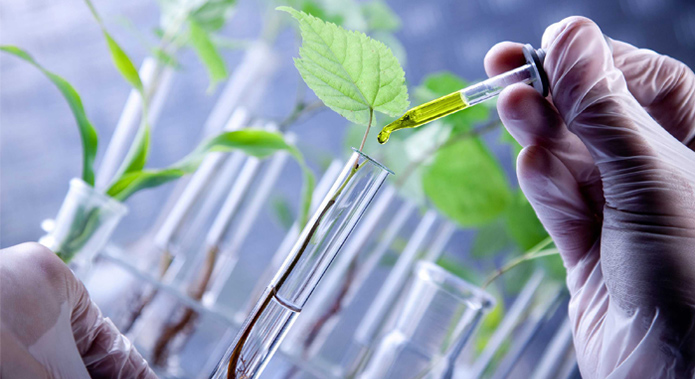
How Biotechnology Is Improving Crop Yield and Food Security
How Biotechnology Is Improving Crop Yield and Food Security
Introduction
With the global population projected to reach 10 billion by 2050, ensuring food security is a critical challenge. Biotechnology has emerged as a powerful tool to enhance agricultural productivity, improve crop resilience, and ensure sustainable food production. By leveraging genetic engineering, molecular breeding, and other biotechnological innovations, scientists are addressing key agricultural challenges and transforming the way food is grown.
The Role of Biotechnology in Enhancing Crop Yield
- Genetic Modification for Higher Yield
- Scientists have developed genetically modified (GM) crops with traits that enhance productivity, such as increased grain size, improved photosynthesis efficiency, and optimized nutrient uptake.
- Crops like GM maize and soybean have been engineered to maximize output per hectare, leading to higher yields and greater food availability.
- Drought and Stress Tolerance
- Climate change has led to erratic weather patterns, increasing the frequency of droughts and extreme temperatures.
- Biotechnology enables the development of drought-resistant crops that can survive and produce food even under water-scarce conditions. Examples include drought-tolerant maize and wheat varieties.
- Disease and Pest Resistance
- Crop diseases and pests significantly reduce yield and threaten food security.
- Genetically engineered crops, such as Bt cotton and Bt corn, produce their own insecticidal proteins, reducing the need for chemical pesticides and minimizing crop losses due to pests and diseases.
- Improved Nutrient Utilization
- Biotechnology enhances the ability of crops to absorb and use nutrients more efficiently.
- Biofortification, such as the development of Golden Rice enriched with vitamin A, helps address malnutrition and improves the nutritional value of staple crops.
Impact of Biotechnology on Food Security
- Increased Food Production
- With higher yields and resistance to environmental stressors, biotechnology ensures a more stable food supply, reducing the risk of shortages and hunger.
- Sustainability in Agriculture
- Biotech crops reduce the dependency on chemical fertilizers and pesticides, promoting environmentally friendly farming practices.
- Conservation agriculture, supported by biotech advancements, helps maintain soil health and biodiversity.
- Economic Benefits for Farmers
- Higher yields and reduced input costs (such as pesticides and fertilizers) contribute to better incomes for farmers, especially in developing countries.
- Smallholder farmers benefit from resilient crop varieties that require fewer resources to thrive.
Challenges and Future Prospects
- Regulatory Hurdles and Public Perception: Despite the benefits, some countries face strict regulations and public skepticism regarding GM crops.
- Biotechnological Innovations: Continued advancements in CRISPR gene-editing, synthetic biology, and precision agriculture hold immense potential for the future.
- Addressing Biodiversity Concerns: Sustainable farming practices should accompany biotech solutions to maintain ecological balance.
Conclusion
Biotechnology is revolutionizing agriculture by boosting crop yields, increasing resilience to climate change, and enhancing food security. As research progresses and regulatory frameworks evolve, biotechnological innovations will play an even greater role in ensuring a sustainable and secure food future for generations to come.













